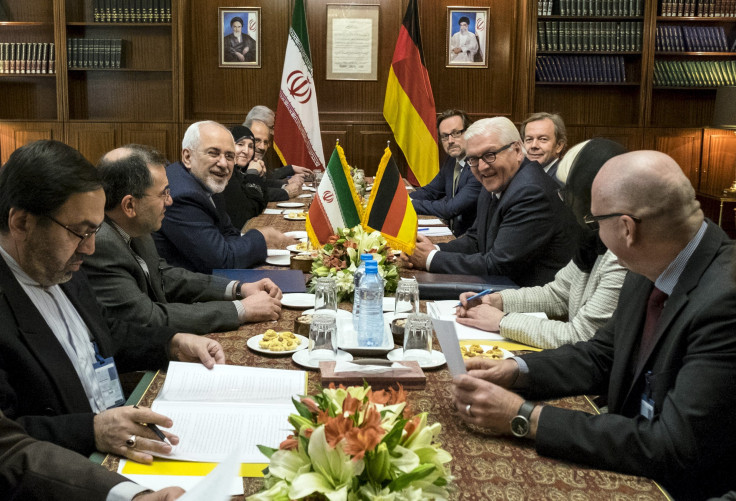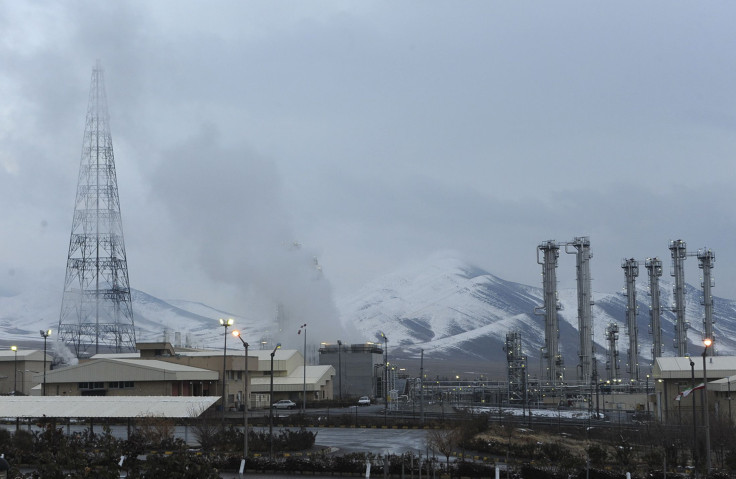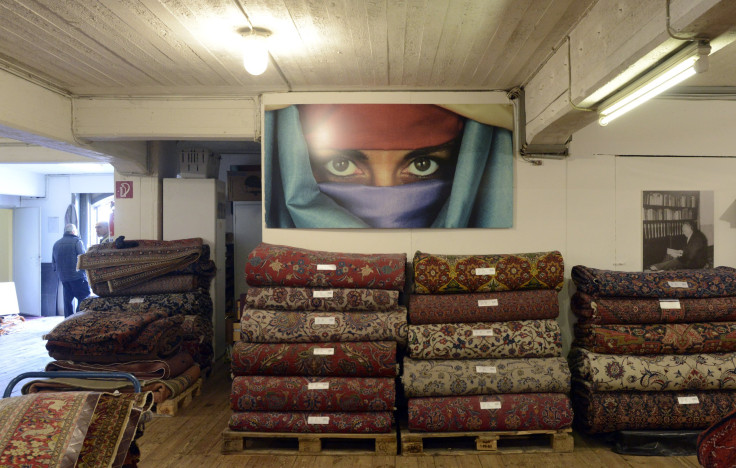Iran Nuclear Deal Sanctions: Why Tehran Wants To Be A Part of International Financial System

As U.S. President Barack Obama directed his administration Sunday to prepare to roll back nuclear-related U.S. sanctions on Iran, a similar but separate and potentially far more momentous step was underway nearly 4,000 miles away from the White House. In Brussels, the European Union adopted a legal framework the same day in preparation for lifting its own sanctions that have blocked the Islamic Republic from using a tool vital for anyone hoping to participate in the global economy: the Society for Worldwide Interbank Financial Telecommunication, better known as Swift.
Iran could see certain sanctions removed as early as a few months from now, following 20 months of negotiations with the group known as the P5+1 – the U.S., Britain, France, Germany, Russia and China – that culminated in the recent historic nuclear accord. But even as Iran begins to head down the path to regaining access to a key part of doing business with the West and perhaps eventually reviving its own economy, its recovery and integration with the global economy is likely to be gradual, if not painstaking.
“One of the most crucial elements that made dealing with Iran very difficult for its trading partners was the inability to use the international banking system,” Farhad Alavi, a Washington, D.C., lawyer and an expert in sanctions law, said. “As Iran gradually enters into the Swift system again, this will grease the wheels of Iran’s trade with the rest of the world, to some extent,” he said.
Swift, a cooperative based in Belgium that is essentially the international system for bank transfers, is required by law to abide by these sanctions. EU regulations passed in March 2012 banned financial messaging providers, the dominant one being Swift, from serving the 30 Iranian banks that had been sanctioned in an effort to choke Iran’s oil industry amid concerns that the country was developing a nuclear weapons program.

The nuclear accord, reached in July, stipulated that certain sanctions the U.S. and the EU had imposed on Iran would be rolled back if Iran dismantled its nuclear weapons program per the terms of the deal. The process is not an instant one; Sunday marked “Adoption Day,” where EU and U.S. officials took steps to prepare to lift those sanctions, even though they won’t actually be reversed for at least several months, on the day dubbed Implementation Day.
It has been set for whenever the International Atomic Energy Agency, the global nuclear watchdog, verifies the fact that Iran is no longer pursuing a nuclear weapons program. The agency has said it aims to release a report by Dec. 15 that will detail the status of Iran’s alleged attempts to covertly build a nuclear weapon. Some estimates hold that sanctions could remain in place until December or January. Under the nuclear deal, if Iran is suspected to be in violation by attempting to develop nuclear weapons, sanctions would "snap back" into place 30 days after the initial suspicion.
“For the time being, all the current EU sanctions remain in place, including measures prohibiting companies such as Swift from providing specialized financial messaging services to EU-sanctioned Iranian banks,” Swift noted in a statement on its website in July after the accord was reached.
How will lifting sanctions on Iran impact the global economy? @WorldBank take on oil & beyond: http://t.co/sl9BlNT3o1 pic.twitter.com/5TSSwDsX2g
— Jaana Remes (@JaanaRemes) August 14, 2015
Banking transactions are crucial in several ways. Not only can they hamper what, in countries with access to Swift, would be a relatively straightforward transaction, they can also forcefully deter countries from doing business with Iran in the first place. After EU sanctions fell into place in 2012, imports to the EU from Iran fell from more than 17 billion euros in 2011 to 1.2 billion euros in 2014, Bloomberg has reported, citing the EU statistics office.
A hypothetical transaction might involve the following: Because funds cannot be wired out of Iran, in order to get paid, a business trying to move money out of Iran would have to find a company with branches in Iran and outside the country. The non-Iranian branch could be used to settle accounts, albeit for transactions in Iran.
Even under sanctions, it is, in fact, legal to do business, in certain sectors, such as pharmaceuticals, with Iran. But when companies choose to do legal business with Iran, they are forced to adopt roundabout approaches to settle accounts that also appear suspiciously opaque, Alawi explained.
“Financing and logistics are at the crux of all business,” Alavi said. “You could have no limitation on anything, but if you have limitations on banking, and shipping and insurance, that will be a huge damper on trade.”

That logistical nightmare alone is enough to deter companies from doing legal business with entities in Iran. There’s also the rules regarding what constitutes legal -- confusing enough to companies and banks that they would prefer not to deal with Iran altogether, Alavi said.
For businesses and financial institutions that don’t get it right, the consequences can be severe. In 2014, the U.S. fined BNP Paribas SA, the French bank, $9 billion for violating international sanctions, including those against Iran.
“Banks don’t want to comb through every transaction and say, ‘This is legal, this is not,’” Alavi said. “They just say, ‘We don’t want to do it.’” That uncertainty won't likely dissipate the moment Adoption Day arrives, he added, and banks won’t dive headfirst into doing business with Iranian counterparts.
Nevertheless, Iran still has the second-largest GDP in the Middle East as well as the second-largest population. If sanctions relief is ultimately implemented, Iran has a great deal of attractions Western banks and companies, from its thriving middle-class consumers to a potentially booming tourism industry, and gaining Swift access is a crucial first step for companies that want in.
© Copyright IBTimes 2024. All rights reserved.





















